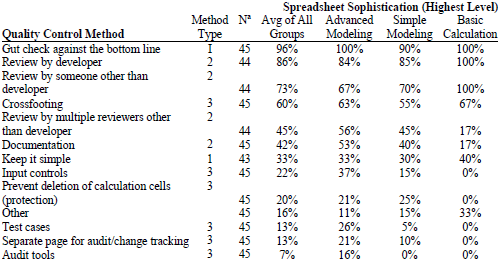Authors
Jonathan P. Caulkins, Erika Layne Morrison, & Timothy Weidemann
Abstract
There is consensus in the literature that spreadsheets are both ubiquitous and error-prone, but little direct evidence concerning whether spreadsheet errors frequently lead to bad decision making.
We interviewed 45 executives and senior managers/analysts in the private, public, and non-profit sectors about their experiences with spreadsheet errors and quality control procedures. Differences across sectors do not seem pronounced.
Almost all respondents report that spreadsheet errors are common. Most can report instances in which the errors directly led to losses or bad decisions, but opinions differ as to whether the consequences of spreadsheet errors are severe.
Error checking and quality control procedures are in most cases informal. A significant minority of respondents believe such ad hoc processes are sufficient because the "human in the loop" can detect any gross errors. Others thought more formal spreadsheet quality control processes could be beneficial.
Sample

In our interviews, 12 error reduction techniques were mentioned repeatedly. Most organizations described 4-5 practices that they believed would detect and reduce errors.
Note: these are techniques respondents reported and presumably believe reduce errors. However, we have no direct evidence concerning whether they actually work.
Publication
2005, Heinz Research, Paper 24
Full article
Spreadsheet errors and decision making: Evidence from field interviews
